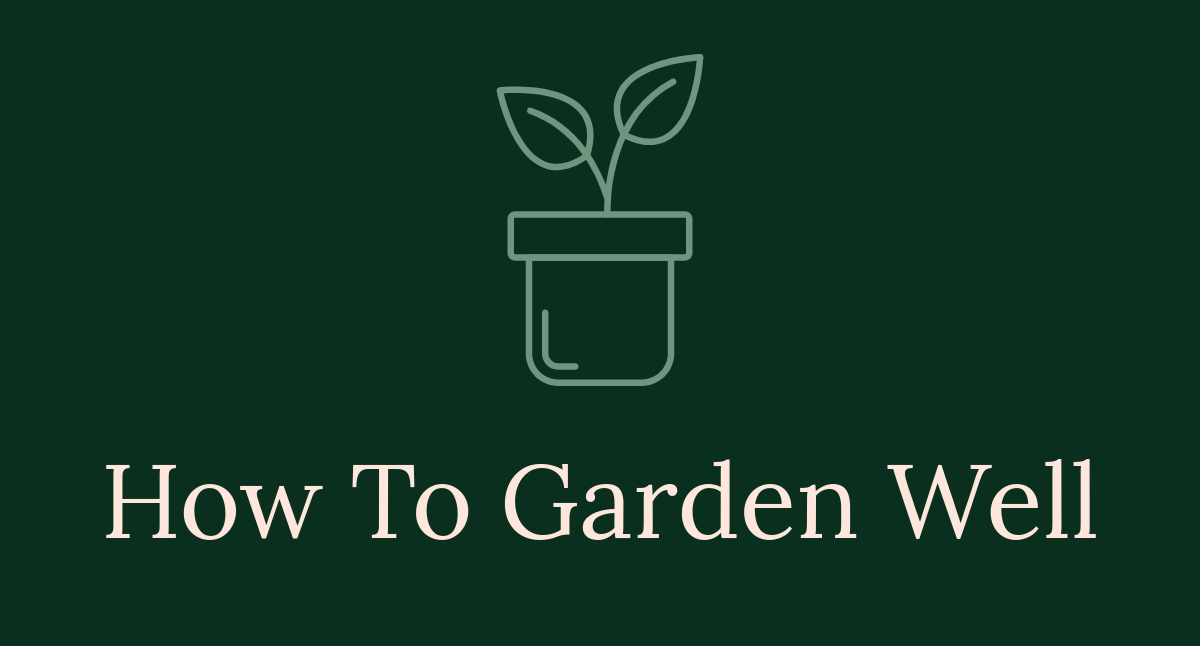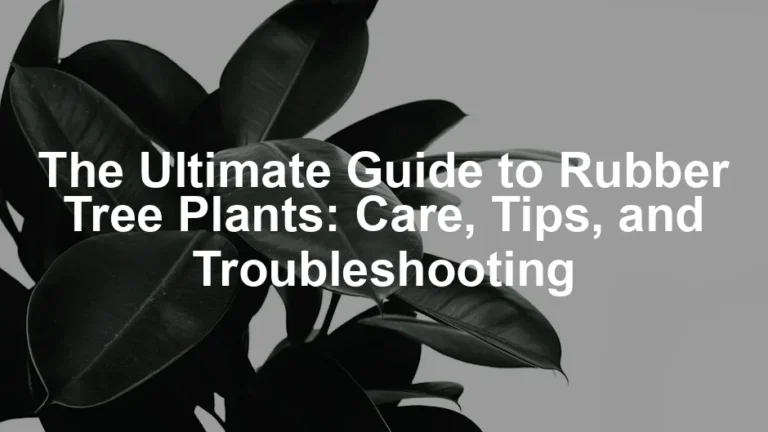
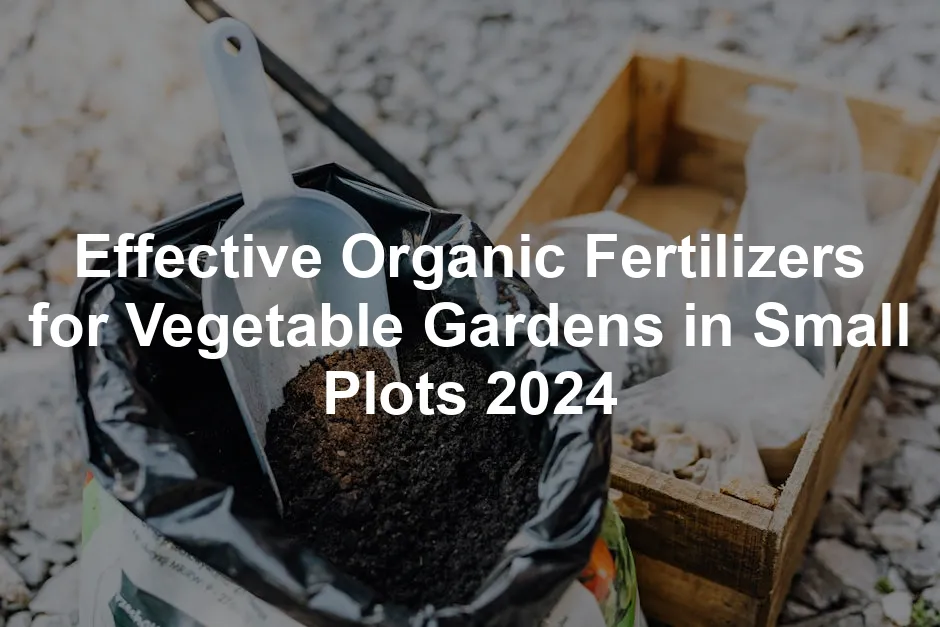
Effective Organic Fertilizers for Vegetable Gardens in Small Plots 2024
Introduction
In the world of gardening, especially for those with small plots, the challenge of nourishing your vegetable garden organically is both exciting and daunting. Imagine transforming your tiny space into a lush oasis of tomatoes, cucumbers, and peppers, all while being environmentally conscious. Organic fertilizers are your secret weapons in this quest. Not only do they promote healthy plants, but they also enhance soil structure and protect our precious ecosystem.
Using organic fertilizers isn’t just about nurturing plants; it’s also about fostering a stronger connection with nature. Think of them as your garden’s best friends, providing essential nutrients without the harmful effects of synthetic options. A diverse array of organic fertilizers offers various benefits tailored to your plants’ specific needs.
Compost, worm castings, and fish emulsion are just a few examples of the organic wonders we’ll discuss. These fertilizers not only improve soil health but also encourage beneficial microorganisms that contribute to a thriving garden. For more insights on composting, check out our Guide to composting in small backyard spaces.
If you’re looking to take your composting to the next level, consider investing in an Organic Compost Bin. It makes the process easier and more efficient, helping you turn kitchen scraps into nutrient-rich compost for your garden.
Understanding how compost can benefit your garden is key to successful gardening. Learn more about composting.
With 2024 on the horizon, there’s no better time to invest in your green thumb. Whether you’re a seasoned gardener or just starting out, understanding these organic options will empower you to make informed choices. Join us as we uncover effective organic fertilizers for vegetable gardens in small plots and discover how to cultivate a thriving garden this year.
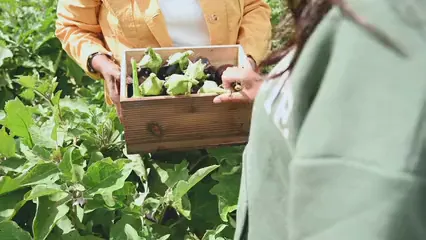
Summary
This guide discusses the best organic fertilizers for small vegetable gardens in 2024, including compost, worm castings, fish emulsion, and more. We explore the environmental and health benefits of using organic fertilizers over synthetic options, emphasizing how they contribute to soil health and plant vitality.
You’ll learn about the top organic fertilizers available today, their specific uses, and how to apply them effectively. Additionally, we share DIY options that are cost-effective and easy to make at home, ensuring that even the most budget-conscious gardener can flourish.
By the end of this article, you’ll not only understand how to enhance soil nutrients but also gain insights into common mistakes to avoid, the future of organic gardening, and a comprehensive FAQ section to address your lingering questions. Prepare to embark on a journey that will yield bountiful harvests while fostering a deeper connection with nature and sustainable gardening practices.
Organic gardening is not just a fad; it’s a lifestyle choice that supports a healthier planet. With the right knowledge and tools at your disposal, you can nourish your garden naturally and sustainably. So, roll up your sleeves and get ready to transform your small plot into a vibrant vegetable garden in 2024. Happy gardening!
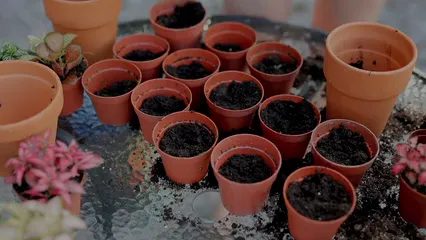
Why Choose Organic Fertilizers?
Environmental Benefits
Organic fertilizers are champions for our planet. Unlike their synthetic counterparts, they break down slowly, minimizing nutrient runoff. This means less pollution in our waterways. When it rains, synthetic fertilizers can wash away, causing algae blooms in lakes and rivers. Organic options, however, stick around, nourishing the soil instead of harming aquatic ecosystems.
Moreover, organic fertilizers improve soil structure. They enhance the soil’s ability to retain moisture and support diverse microbial life. Healthy soil means healthy plants, which leads to robust gardens. Think of it as giving your dirt a much-needed spa day!
In the long run, using organic fertilizers promotes a sustainable gardening approach. You’re not just feeding your plants; you’re nurturing the environment. It’s a win-win for both gardeners and Mother Earth.

Health Advantages
Using organic fertilizers means you’re not just feeding your plants; you’re also caring for your health. Vegetables grown with organic fertilizers are free from synthetic chemicals. This is especially important since many chemicals can linger in the soil and end up in your dinner plate.
When you grow veggies with organic methods, you’re boosting biodiversity. Organic fertilizers encourage beneficial insects and microorganisms, creating a balanced ecosystem in your garden. More bees and butterflies mean better pollination, which leads to bigger, tastier harvests. To learn more about attracting beneficial insects, check out our Tips for attracting beneficial insects to your garden.
Enhancing biodiversity in your garden is crucial for a healthy ecosystem. Discover how to attract beneficial insects.
Plus, when you munch on those homegrown goodies, you can feel good knowing you’ve chosen a healthier option. You’re not just growing food; you’re cultivating wellness. Who knew gardening could be this good for you and the planet?
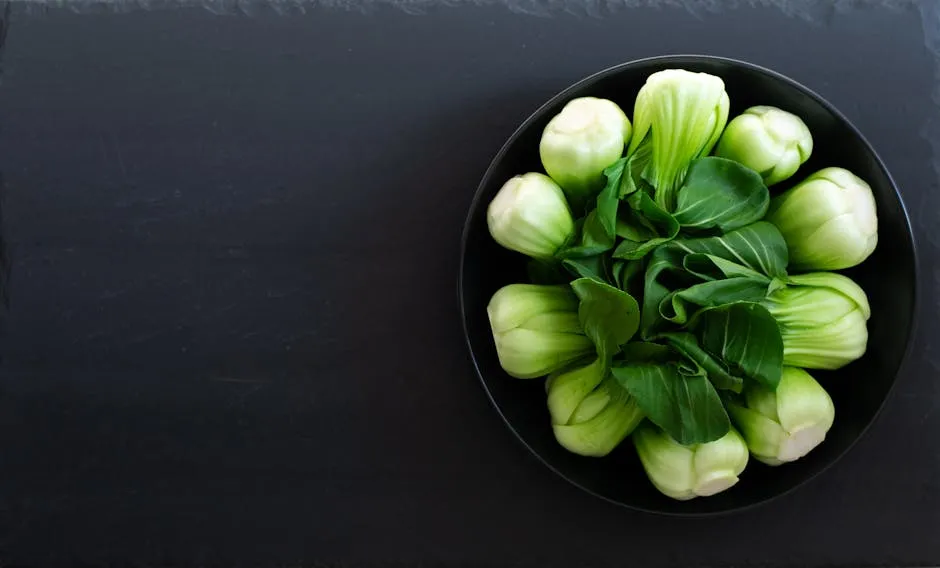
Top Organic Fertilizers for Small Vegetable Gardens in 2024
Compost: Nature’s Gold
Compost is the superstar of organic fertilizers. It’s packed with nutrients and helps improve soil structure. Making compost at home is simple and rewarding. Gather kitchen scraps like vegetable peels, fruit rinds, and coffee grounds. Toss them into a compost bin or pile with yard waste, like leaves and grass clippings. Keep it moist and turn it regularly to speed up the decomposition process.
When your compost is ready, it will resemble dark, crumbly soil. This nutrient-rich material is ready to work its magic! You can apply compost in two main ways: top dressing and soil incorporation.
For top dressing, sprinkle a layer around your plants. This provides nutrients as it breaks down. For soil incorporation, mix compost into the top few inches of your garden soil. This method enriches the entire planting area, ensuring your veggies have access to a steady supply of nutrients.
Using compost not only nourishes your plants but also diverts waste from landfills. It’s a fantastic way to recycle while enhancing your garden’s health. So, get composting and watch your vegetable garden thrive!
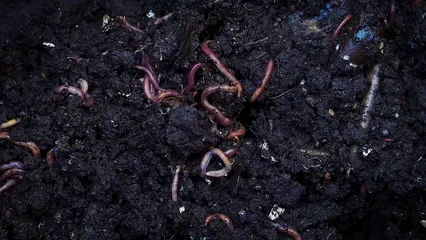
Worm Castings: The Superfood for Plants
Worm castings, often deemed the superfood of the garden, pack a punch! These little nuggets of joy contain a rich nutrient profile. They are high in nitrogen, phosphorus, and potassium. But that’s not all! Worm castings are also loaded with beneficial microorganisms that foster soil health and promote plant growth. Think of them as tiny superheroes working tirelessly beneath the surface.
Using worm castings can lead to stronger plants with improved drought resistance. They help balance soil pH and enhance nutrient availability. Plus, they improve soil structure, making it easier for roots to grow. Not bad for a little worm poop, right?
Wondering where to source these magic beans? You can purchase them at garden centers or online. Many local gardeners offer their own castings, so check community forums or farmers’ markets. If you’re feeling adventurous, consider starting your own Worm Composting Kit. It’s a fun project that provides endless benefits to your garden!
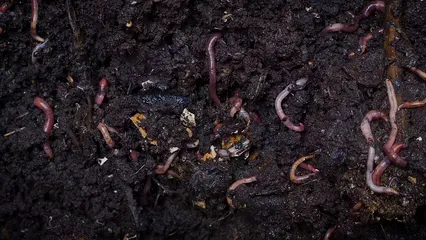
Fish Emulsion: Ocean-Sourced Nutrients
Fish emulsion is a liquid fertilizer derived from fish waste. This nutrient-rich concoction is high in nitrogen, phosphorus, and potassium—perfect for lush, leafy growth. It’s like giving your plants a seafood buffet!
To use fish emulsion, dilute it according to label instructions. Apply it as a foliar spray or a soil drench every few weeks during the growing season. Your plants will thank you as they soak up those ocean-sourced nutrients!
When sourcing fish emulsion, opt for sustainably produced options. Many brands are now committed to eco-friendly practices. You can find these at health food stores, garden centers, or online retailers. Supporting sustainable practices means you’re not just helping your plants; you’re also helping our oceans! For a great option, check out Fish Emulsion Fertilizer available online!

Bone Meal: Phosphorus Powerhouse
Bone meal is a fantastic source of phosphorus and calcium, crucial for strong root development and vibrant blooms. It’s especially beneficial for flowering plants like tomatoes and peppers. Think of it as a five-star restaurant for your roots!
To incorporate bone meal, sprinkle it on the soil or mix it into planting holes. A little goes a long way! Just use about one to two tablespoons per plant. This slow-release fertilizer will provide nutrients over time, making it an ideal choice for long-term growth.
When choosing bone meal, look for finely ground options. This ensures better absorption by your plants. You can find it at garden centers or online retailers. It’s a simple way to boost the health of your vegetable garden! For a reliable option, check out Bone Meal Fertilizer available online!

Seaweed Extract: Micronutrient Marvel
Seaweed extract is a treasure trove of micronutrients. It contains potassium, magnesium, calcium, and trace minerals that enhance plant health and resilience. Think of it as an all-you-can-eat buffet for your plants!
Application is easy: you can use it as a liquid fertilizer or a foliar spray. For best results, apply it during the early stages of plant growth and again during flowering. This timing ensures your plants receive the nutrients when they need them most.
When sourcing seaweed extract, look for sustainably harvested options. Many brands now offer organic seaweed products, readily available at garden centers or online. Using seaweed extract not only nourishes your plants but also supports sustainable oceanic practices. For an excellent product, check out Seaweed Extract Fertilizer available online!

DIY Organic Fertilizers
Creating your own organic fertilizers can be a fun and rewarding experience! Not only will it save you money, but it also allows you to control what goes into your garden. Here are a few simple methods to get you started:
1. Compost Tea: Steep compost in water for a few days. Strain and dilute with more water. This nutrient-rich liquid can be used to water your plants, providing them with a boost of nutrients.
2. Banana Peel Fertilizer: Chop banana peels and bury them in the soil or soak them in water for a potassium-rich liquid fertilizer. Your plants will flourish with this easy addition!
3. Coffee Grounds: Used coffee grounds are rich in nitrogen. Sprinkle them around your plants or mix them into the soil to improve its structure and nutrient content. For a great option, consider checking out Coffee Grounds Fertilizer available online!
4. Eggshells: Crush eggshells and sprinkle them in the garden for a calcium boost. They help prevent blossom end rot in tomatoes and peppers!
5. Wood Ash: If you have a fireplace, save the ash! It’s high in potassium and can be worked into the soil to improve fertility.
Experimenting with these DIY fertilizers can lead to healthier plants and a more fruitful garden. Enjoy the process and watch your vegetable garden thrive!

Banana Peel Fertilizer: Potassium Boost
Banana peels are a hidden gem in the world of organic gardening! These humble scraps pack a potassium punch, essential for strong plant growth. To use banana peels effectively, start by chopping them into small pieces. This increases their surface area, allowing nutrients to break down faster in the soil. You can either bury these chunks near your plants or steep them in water for a nutrient-rich liquid fertilizer.
If you opt for the liquid method, simply fill a jar with water and add the chopped peels. Let it sit for about three days. After this, strain the mixture, and voilà! You have a potassium-rich fertilizer ready to invigorate your garden. Use this liquid as a soil drench or a foliar spray to give your plants a delightful boost. Your veggies will thank you!
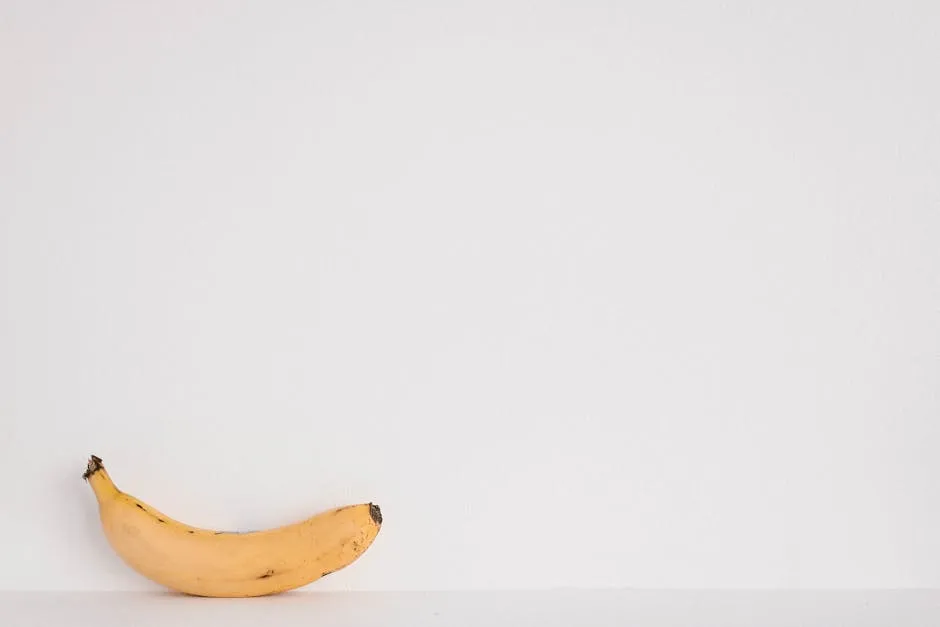
Other DIY Options
If banana peels aren’t your thing, fear not! There are plenty of other DIY options to enhance your garden’s health. Consider wood ash, coffee grounds, and eggshells—each is a powerhouse in its own right.
Wood ash is a fantastic source of potassium and can help raise soil pH. Just sprinkle a thin layer around your plants, but don’t overdo it; a little goes a long way!
Coffee grounds are a gardener’s best-kept secret. Not only do they add nitrogen to the soil, but they also attract earthworms, which aerate the soil. Simply sprinkle used grounds around your plants or mix them into your compost.
Don’t toss those eggshells! Crushed eggshells are rich in calcium, which is crucial for preventing blossom end rot in tomatoes and peppers. Just crush them and mix them into the soil. Easy peasy!
By incorporating these DIY options, you’re not only saving money but also reducing waste while nourishing your plants. Happy gardening!
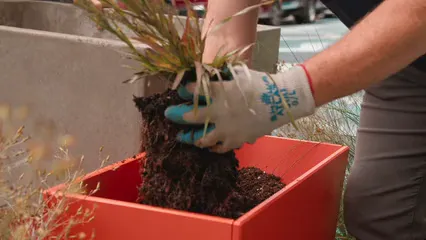
Integrating Organic Fertilizers with Other Gardening Practices
To maximize your vegetable garden’s potential, integrating organic fertilizers with other gardening practices is essential. First off, let’s talk about crop rotation. This practice involves changing the types of crops grown in a particular area each season. It helps prevent soil nutrient depletion and reduces pest populations. When you rotate crops, different plants use varying nutrients. This means your soil gets a chance to recover and replenish itself. As a bonus, rotating legumes, like beans, can actually enrich the soil with nitrogen, benefiting your next crop! For more on this, check out our article on understanding crop rotation for healthier vegetables.
Crop rotation is a vital practice for maintaining soil health. Learn more about crop rotation.
Companion planting is another fantastic method to pair with organic fertilizers. This technique involves planting different crops in proximity for a mutual benefit. For instance, basil planted near tomatoes can repel pests and enhance flavor. By diversifying what grows in your garden, you can create a more balanced ecosystem. It’s like throwing a garden party where everyone brings their unique dish!
Now, let’s not forget about mulching. Mulch is like a cozy blanket for your plants. It helps retain moisture, suppresses weeds, and gradually adds organic matter to the soil as it breaks down. Applying mulch can complement organic fertilizers by enhancing soil structure and improving nutrient availability. Think of mulch as the icing on your gardening cake—necessary for a perfect finish! Consider using Organic Garden Mulch for the best results!
By integrating these practices with organic fertilizers, you’ll create a thriving garden that’s not only productive but also sustainable. Cheers to healthy soil and happy plants!
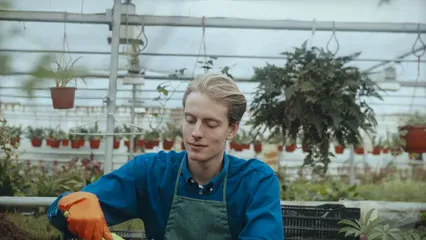
The Future of Organic Fertilizers
As we look to the future, organic fertilizers are evolving. Emerging trends are paving the way for more personalized blends tailored to specific plant needs. Imagine walking into your local garden center and finding a fertilizer formulated just for your tomato plants! With advancements in soil testing technology, gardeners can now determine their soil’s unique nutrient profile. This means more targeted fertilization, leading to healthier plants and increased yields.
Moreover, technology is playing a significant role in improving organic gardening. Apps and online platforms now provide gardeners with real-time data on soil health and plant requirements. By analyzing this information, you can make better decisions about when and how to fertilize. Plus, innovative composting systems are making it easier to create nutrient-rich fertilizers at home. These systems often come equipped with sensors that monitor moisture levels and decomposition rates, taking the guesswork out of composting.
Sustainability is at the forefront of these advancements. More companies are focusing on eco-friendly sourcing and packaging for their fertilizers. As awareness grows, gardeners are choosing products that not only nourish their plants but also protect our planet. The future of organic fertilizers is bright, promising a more personalized, efficient, and sustainable approach to gardening.

Conclusion
Choosing effective organic fertilizers for your vegetable garden doesn’t have to be complicated. With the right knowledge and tools, you can nourish your plants naturally and sustainably. By embracing compost, worm castings, and DIY solutions, you’re not just growing vegetables; you’re cultivating a healthier planet. So, roll up your sleeves and get ready to transform your small plot into a thriving vegetable garden in 2024. Happy gardening!
Please let us know what you think about our content by leaving a comment down below!
Thank you for reading till here 🙂
All images from Pexels
